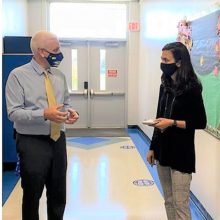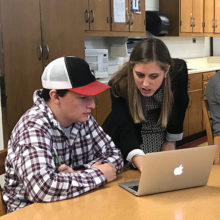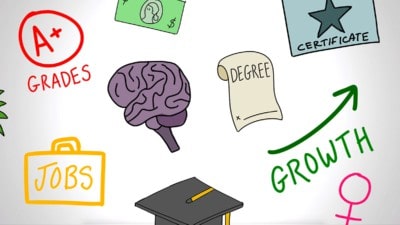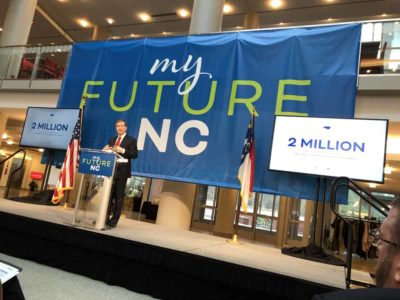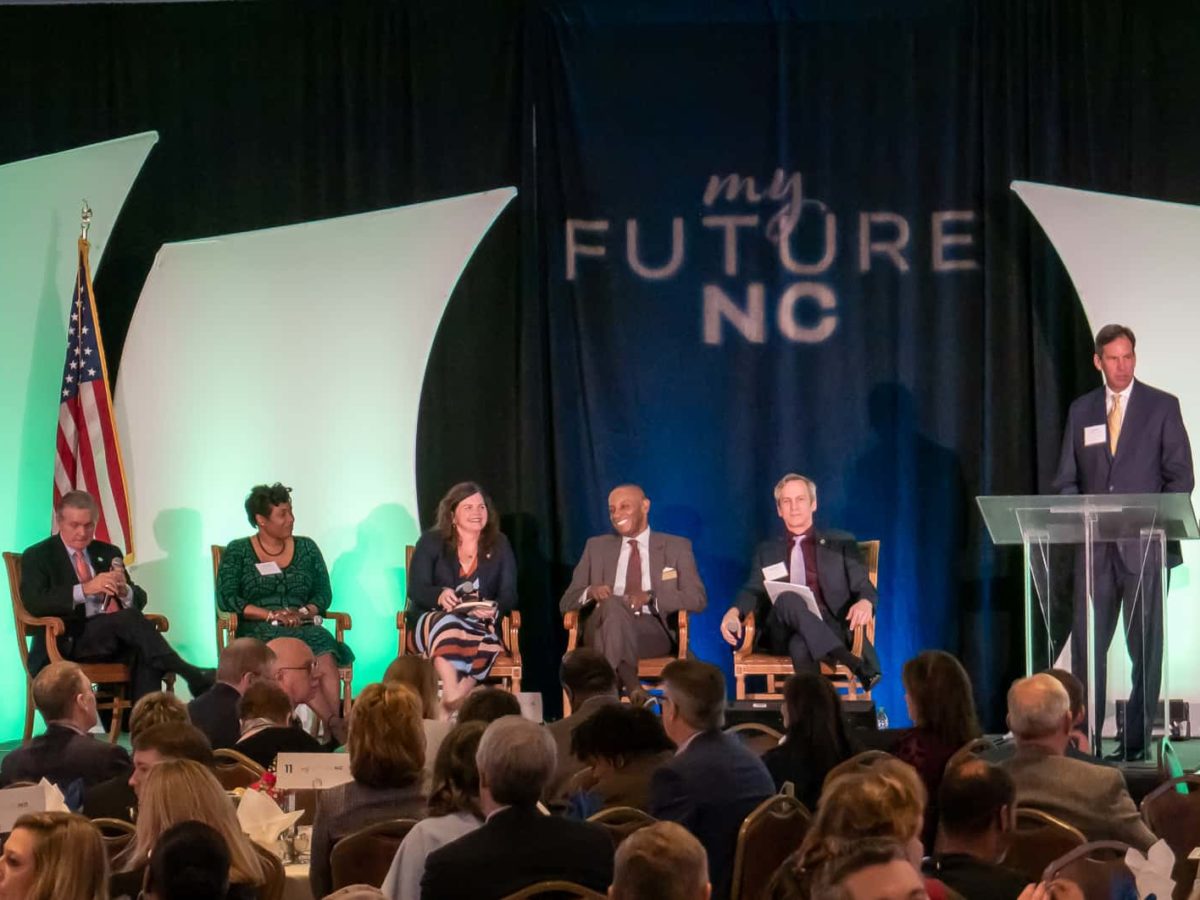
Until Feb. 2019, North Carolina was one of just a handful of states without a statewide postsecondary attainment goal. That changed when myFutureNC, after months of work as a cross-sector commission, established one:
2 million 25- to 44-year-olds with a high-quality postsecondary credential or degree by 2030.
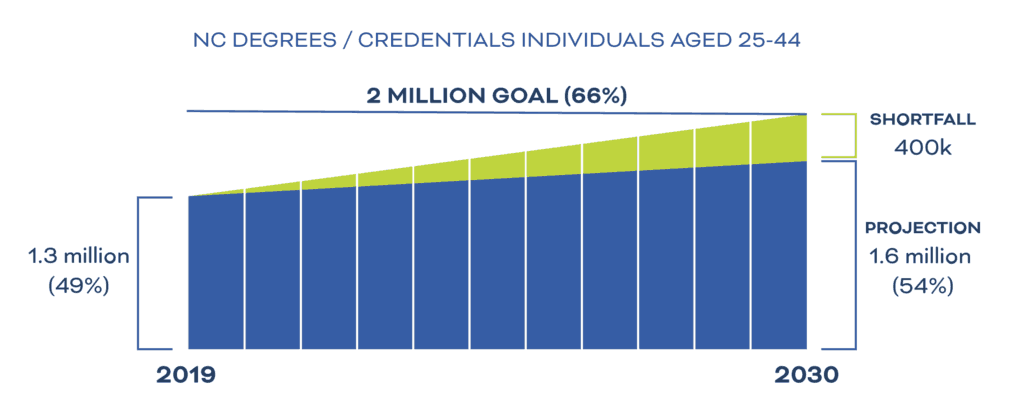
More recently, myFutureNC became a 501(c)3 nonprofit organization and named Cecila Holden as president and CEO. On Feb. 10, 2020, almost a year after the attainment goal was established, hundreds of business, workforce, and education stakeholders convened in Greensboro for an update on the attainment goal and a discussion of how to increase postsecondary attainment at the local level.
Under current projections, North Carolina would fall roughly 400,000 people short of its goal in 2030 unless action is taken to boost attainment. EdNC produced the following video for myFutureNC to explain the leaky educational pipeline.
“While this is being state-led, it’s important to know that it must be locally driven,” said Holden.
Holden outlined five levers to moving the work of myFutureNC forward:
- Convening and engaging stakeholders.
- Catalyzing and supporting.
- Aligning and coordinating across educational systems.
- Advancing evidence-based practices and policies.
- Measuring progress towards the goal.

Local counties might be wondering: What’s our share of the 2 million goal? To address this, Carolina Demography and myFutureNC worked to develop a statewide educational attainment dashboard.
“What we’ve developed at the state level is an ability to see where we are right now, look at where we’re trying to go, … and look at how other southern states that we consider peers to North Carolina are doing so there’s an opportunity to identify potential partners to learn from,” said Rebecca Tippett, Director of Carolina Demography.
Within the dashboard, county-level data profiles include key education and workforce indicators and identify opportunities for growth. Indicators in the dashboard span the educational continuum, including things like NC Pre-K enrollment and the labor force participation rate.
“They really try to give local leaders across the state a set of shared information that allows them to identify those critical next steps that they might need to take and serve as the basis for conversations about how they move their local education continuum forward,” Tippett said.
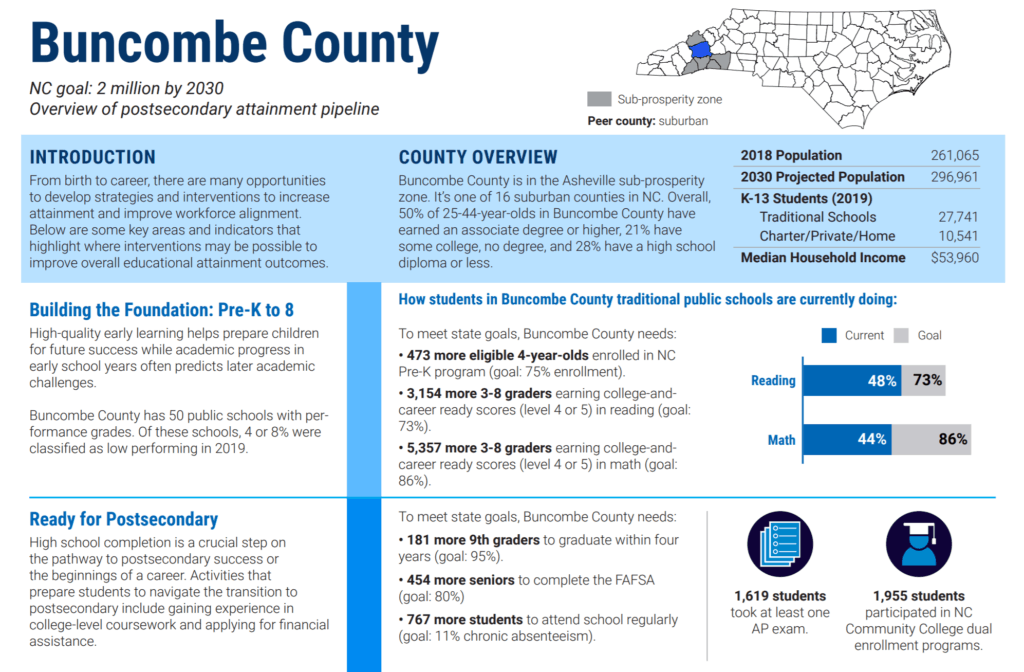
“The task ahead is a big one. This didn’t happen overnight and we can’t fix it overnight. Most importantly to remember is everyone has something to offer — whether it’s your time, your talents, your financial resources, your knowledge, your expertise, your relationships — everyone has something to offer,” said Holden.
After Holden’s remarks, a panel discussion included: moderator Stan Kelly, CEO and President of Piedmont Triad Partnership; Kevin Austin, President of the North Carolina Association of County Commissioners; Sen. Deanna Ballard, R-Alleghany; Lt. Gov. Walter Dalton, President of Isothermal Community College; Dr. Anthony Jackson, Superintendent of Vance County Public Schools; and Ursula Dudley Oglesby, President of Dudley Beauty Corp.
Over lunch, attendees engaged in table conversations about how to drive postsecondary attainment forward at the local level. Andrew Kelly, Senior Vice President for Strategy and Policy at the UNC System, summarized the discussions.
Hope Williams, President of the North Carolina Independent Colleges and Universities, said collaboration between the independent colleges, community colleges, and UNC system schools is essential to reach the goal:
“Our 36 independent colleges and universities award one-third of the undergraduate and professional degrees in North Carolina,” said Williams, “so it’s absolutely critical that we come together with our public sector counterparts, with whom we have great partnerships, and work on this together. It’s a commitment for all of us in North Carolina.”
North Carolina Community College System President Peter Hans closed out the event, stressing the importance of building community in meeting the attainment goal.
“To me, it’s clear,” Hans said. “To meet our goal, we must provide hope. To provide hope, we must build community.”

Watch a recap video of the event here.
Watch a full live stream of the event below.

